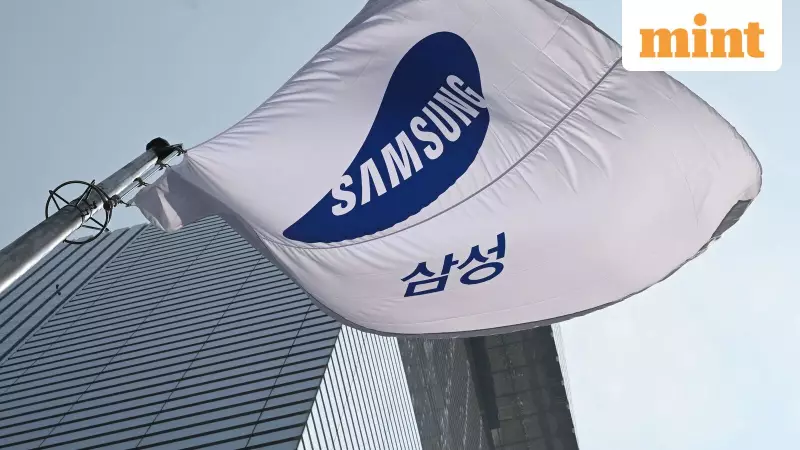
In a dramatic market shift, Samsung Electronics has implemented massive price increases for memory chips, with some products seeing jumps of up to 60% compared to September prices. This unprecedented hike comes as global demand for artificial intelligence technologies creates severe supply constraints across the semiconductor industry.
Understanding the Price Surge
The world's largest memory chip manufacturer has taken aggressive pricing actions this month, with specific products showing staggering increases. According to industry sources cited by Reuters, Samsung's contract prices for 32GB DDR5 memory chip modules skyrocketed to $239 in November from just $149 in September.
The price escalation follows Samsung's unusual decision to delay formal pricing announcements for supply contracts in October, breaking from the typical monthly pricing announcements that characterize the industry. This strategic move signaled the company's confidence in its pricing power amid tightening market conditions.
Detailed Price Breakdown Across Products
The price increases have affected multiple memory chip categories, with industry expert Tobey Gonnerman, president of semiconductor distributor Fusion Worldwide, providing specific figures to Reuters. 16GB DDR5 chips saw approximately 50% increases, rising to $135, while the more advanced 128GB DDR5 chips similarly increased by about 50% to reach $1,194.
Other product categories also experienced significant hikes, with 64GB DDR5 and 96GB DDR5 memory chips surging over 30%. These DDR memory chips are critical components in servers, computers, and various electronic devices, where they enhance computing performance by temporarily storing data and enabling rapid data transfer and retrieval.
Market Impact and Industry Consequences
The ripple effects of these price increases are already being felt across multiple sectors. Server manufacturers and data center developers are facing particularly severe challenges, with many acknowledging they cannot secure adequate supply. The situation has become so dire that some customers have engaged in panic buying, according to industry executives and analysts.
Leading server manufacturers and data center developers now openly admit they're not receiving sufficient supply, with premiums reaching exceptionally high levels. This supply crunch is expected to put additional pressure on large companies building their data infrastructure and could ultimately lead to higher prices for consumer electronics.
The smartphone industry is already feeling the pinch, with Chinese manufacturer Xiaomi warning last month that rising chip prices have increased their production costs. This suggests that consumers may soon face higher prices for smartphones and computers as manufacturers pass along these increased component costs.
Investor Response and Market Dynamics
Financial markets have responded enthusiastically to the developments, with shares of Samsung, SK Hynix, and US chipmakers experiencing significant surges. This investor enthusiasm highlights how the AI boom has created exceptionally strong demand for chips specifically tailored for AI applications and the memory chips used within them.
According to KB Securities research head Jeff Kim, Samsung's gradual transition toward AI chips has provided the company with stronger pricing power compared to smaller memory competitors like SK Hynix and Micron. This strategic positioning has proven particularly beneficial for Samsung, which had previously fallen behind competitors in providing advanced AI chips and hadn't experienced substantial profit growth until recently.
Future Outlook and Industry Predictions
Industry analysts anticipate the price increases will continue through the remainder of the year. TrendForce analyst Ellie Wang projects that Samsung is likely to increase quarterly contract prices by 40% to 50% during October-December, significantly surpassing the expected industry average of 30%.
Wang attributes this confidence to robust demand and the industry's shift toward long-term supplier agreements. "They are really confident that the price is going to increase. And the main reason is that now the demand is really strong, and everyone is working on long-term agreements with the suppliers," she explained.
Looking toward the future, Samsung has announced plans to construct a new chip manufacturing line at its South Korean plant, anticipating that AI will continue to drive demand over the medium and long term. This strategic investment underscores the company's belief that the current market dynamics represent a sustained trend rather than a temporary fluctuation.
While Samsung has not officially commented on the reported price hikes, and Livemint could not independently verify the report, the market evidence and industry commentary strongly suggest a fundamental shift in the memory chip landscape driven by the artificial intelligence revolution.





